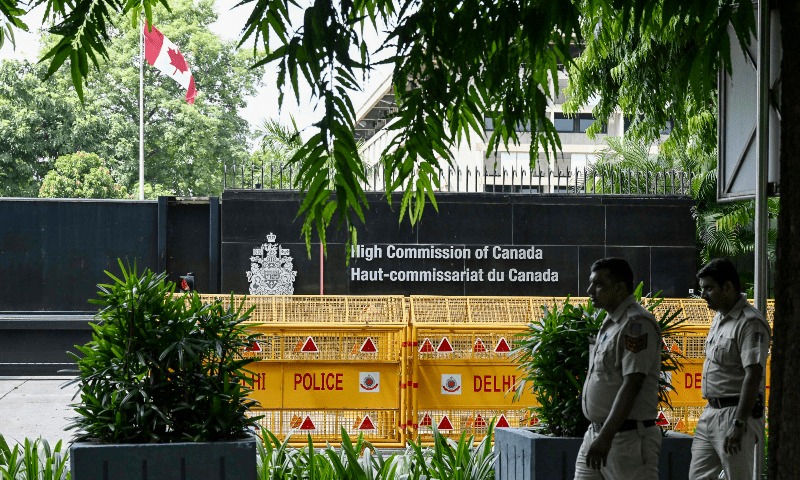Diplomatic relations between Canada and India have taken a turbulent turn as Canada announces the withdrawal of 41 diplomats from India amidst an escalating dispute over the murder of a Sikh separatist leader. Foreign Minister Melanie Joly, in a press conference, revealed that Ottawa had decided to facilitate the safe departure of its diplomats from India in response to New Delhi’s request for a reduction in diplomatic presence. This request followed Canadian Prime Minister Justin Trudeau’s assertion of a potential link between Indian agents and the murder of Hardeep Singh Nijjar, which occurred outside a Sikh temple in British Columbia in June. Joly described India’s ultimatum as unreasonable and unprecedented, asserting that it violated the Vienna Convention on Diplomatic Relations. The withdrawal of diplomats signifies a significant shift in Canada-India relations, with implications for the sizeable Indian expatriate community in Canada.
Diplomatic Tensions Escalate Over Assassination Allegations
The rift between Canada and India stems from allegations surrounding the murder of Hardeep Singh Nijjar, a Sikh separatist leader. Prime Minister Trudeau’s assertion of credible evidence suggesting a potential link between Indian agents and Nijjar’s murder added fuel to an already contentious situation. New Delhi’s response to this claim was swift and unprecedented, leading to a diplomatic standoff. The Indian government requested that Canada reduce its diplomatic presence in the country, leading to a complex diplomatic scenario. The accusations and counter-accusations have cast a shadow over the two nations’ diplomatic ties, raising questions about the future trajectory of their relationship.
India’s Unprecedented Ultimatum and Canada’s Response
Foreign Minister Melanie Joly emphasized the gravity of India’s ultimatum, which threatened to unilaterally revoke the official status of Canadian diplomats unless they departed by a specified deadline. This ultimatum was met with firm opposition from Canada. Joly argued that India’s actions were unreasonable and clearly violated the Vienna Convention on Diplomatic Relations. Fearing for the safety of Canadian diplomats, Ottawa chose to facilitate their safe departure from India, a decision that marks a significant step in the evolving diplomatic dispute. Importantly, Joly noted that Canada would not reciprocate in a manner that could compromise diplomatic immunity, highlighting the broader implications of this diplomatic standoff.
Implications for Canada-India Relations and Canadian Expatriates
The withdrawal of 41 diplomats from India underscores the depth of the dispute and the potential ramifications for Canada-India relations. This move, unprecedented in recent diplomatic history, raises questions about the future state of relations between the two nations. The complexities of the situation extend beyond diplomatic ties and have implications for the sizable Indian expatriate community in Canada. With around two million Canadians of Indian heritage, constituting approximately 5 percent of the country’s overall population, the dispute has the potential to impact community dynamics, bilateral cooperation, and cultural exchanges. Furthermore, India remains the largest source of global students for Canada, making the situation all the more significant in terms of international education and people-to-people connections.
The evolving situation between Canada and India serves as a stark reminder of the intricate nature of international relations and the importance of diplomatic protocols. The coming days will likely shed light on how these nations navigate this complex dispute and whether they can find common ground to restore diplomatic equilibrium.















